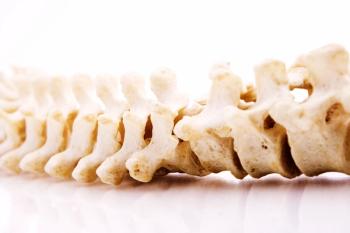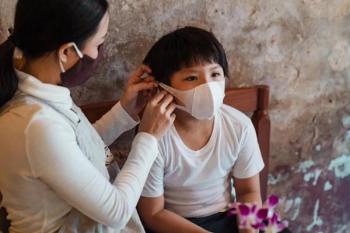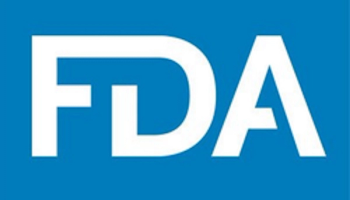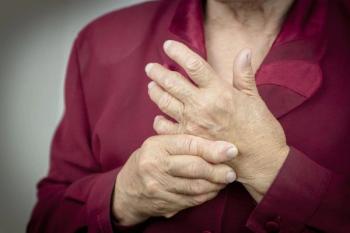
The nasal polyposis quality of life (NPQ) questionnaire was shown to be valid, reliable, and sensitive to individual changes in evaluating the health-related quality of life of patients with chronic rhinosinusitis with nasal polyps.

Matthew is an associate editor for The American Journal of Managed Care® (AJMC®). He joined AJMC® in 2019 and creates content for Medical World News®, a 24-hour online program developed MJH Life Sciences® focusing on pressing topics within managed care, as well as the nonwork-related activities of health care stakeholders.
He has a BA in journalism & media studies and economics from Rutgers University. You can connect with Matthew on LinkedIn.

The nasal polyposis quality of life (NPQ) questionnaire was shown to be valid, reliable, and sensitive to individual changes in evaluating the health-related quality of life of patients with chronic rhinosinusitis with nasal polyps.

Uncontrolled disease burden was a major unmet need among children with moderate to severe atopic dermatitis (AD) who were unresponsive to topical therapies.

Kashyap Patel, MD, CEO of Carolina Blood and Cancer Care Associates, and current president of the Community Oncology Alliance (COA), speaks on what he’s looking forward to for his first in-person Community Oncology Conference as COA president.

Clinical response to ustekinumab for patients with psoriasis was shown to vary by body region, in which lower extremities were identified as the most difficult to treat.

Edward W. Cowen, MD, MHSc, senior clinician and acting branch chief, Dermatology Branch, National Institutes of Health, discusses considerations to address unmet needs and identify appropriate treatment of patients with pustular psoriasis.

Polyp recurrence occurred in more than 1 in 3 patients with chronic rhinosinusitis with nasal polyps who underwent endoscopic sinus surgery, with several prognostic factors linked with recurrence.

A webinar by the National Cancer Treatment Alliance discussed current use and diagnostic/therapeutic benefits of comprehensive genomic profiling in oncology, as well as recommendations for employers and benefit consultants considering biomarker testing.

Polish patients with atopic dermatitis reported lower overall health and impaired quality of life related to mental health in the first year of the COVID-19 pandemic.

Patients with chronic rhinosinusitis (CRS) with nasal polyps reported significantly reduced anosmia prevalence when given dupilumab vs placebo.

Robert Sidbury, MD, MPH, chief, Division of Dermatology, Seattle Children's Hospital, speaks on the efficacy of biologics in the treatment of atopic dermatitis and other recently approved therapeutics.

Adalimumab and infliximab were the most common biologic therapies associated with the onset of palmoplantar pustulosis and palmoplantar pustular psoriasis.

Robert Sidbury, MD, MPH, chief of the Division of Dermatology at Seattle Children's Hospital, discusses risk factors involved in the pathogenesis of atopic dermatitis and several diagnostic methods.

Japanese children of parents whose family business was primarily industry, including agriculture, forestry, and fisheries, had a greater risk of atopic dermatitis (AD) development.

Asthma, aspirin-exacerbated respiratory disease, and nasal cytology were identified as predictors of chronic rhinosinusitis with nasal polyps recurrence.

A JAMA Dermatology study found that greater exposure to air pollutants, such as carbon monoxide and fine particulate matter, were significantly associated with later psoriasis flares.

Response to immunotherapy and survival outcomes were found to be significantly associated with tumor mutational burden in patients with stage IV non-small cell lung cancer.

Risankizumab was shown to be highly effective in patients with moderate to severe psoriasis of tertiary medical centers in Italy, in which response was found to be significantly affected by smoking, and incidence of psoriatic arthritis.

Children with moderate to severe atopic dermatitis were found to be more likely to report suboptimal sleep and attention regulation outcomes.

More patients with moderate-to-severe psoriasis were found to be early responders to ixekizumab vs ustekinumab; all those who achieved early response were associated with stable skin clearance long-term.

Robert Sidbury, MD, MPH, chief, Division of Dermatology, Seattle Children's Hospital, speaks on the inflammatory mechanisms of atopic dermatitis and risk of comorbidities in affected patients.

Researchers reviewed advances in the management of chronic rhinosinusitis, with and without nasal polyps, from 2020 to 2021.

Patients with chronic rhinosinusitis with nasal polyps who had elevated serum amyloid A (SAA) levels were more likely to achieve disease-controlled status vs those with low SAA levels after endoscopic sinus surgery.

Poor agreement was identified regarding MRI- and classification-defined axial spondyloarthritis (axSpA) and inflammatory back pain diagnoses in patients with psoriatic disease.

Part 1 of a 2-part webinar series by the National Alliance of Healthcare Purchaser Coalitions addressed issues in health care coverage affordability and how equitable health benefits and value-based design can reduce cost while improving employee engagement.

Researchers discuss contributors to nasal polyp development in children, as well as the risk of co-occuring conditions and current methods of treatment.

The JAK1 inhibitor abrocitinib (Cibinqo) was recently approved by the FDA for the treatment of adults with refractory, moderate to severe atopic dermatitis.

Sinonasal CT scores were associated with several prognostic features in the disease course of chronic rhinosinusitis with nasal polyps, including blood eosinophil counts and risk of relapse after endoscopic sinus surgery.

Psoriasis developed in 1 in 4 patients with axial spondyloarthritis (axSpA) across a 6-year span, in which those with both conditions reported greater joint involvement and biologic use than those with only axSpA.

Minority patients and those with low income were more likely than White and high-income counterparts to report adverse outcomes in the management of asthma and eczema.

Edward W. Cowen, MD, MHSc, senior clinician and acting branch chief, Dermatology Branch, National Institutes of Health, discusses treatment considerations for patients with different types of pustular psoriasis.

259 Prospect Plains Rd, Bldg H
Cranbury, NJ 08512
© 2025 MJH Life Sciences®
All rights reserved.
